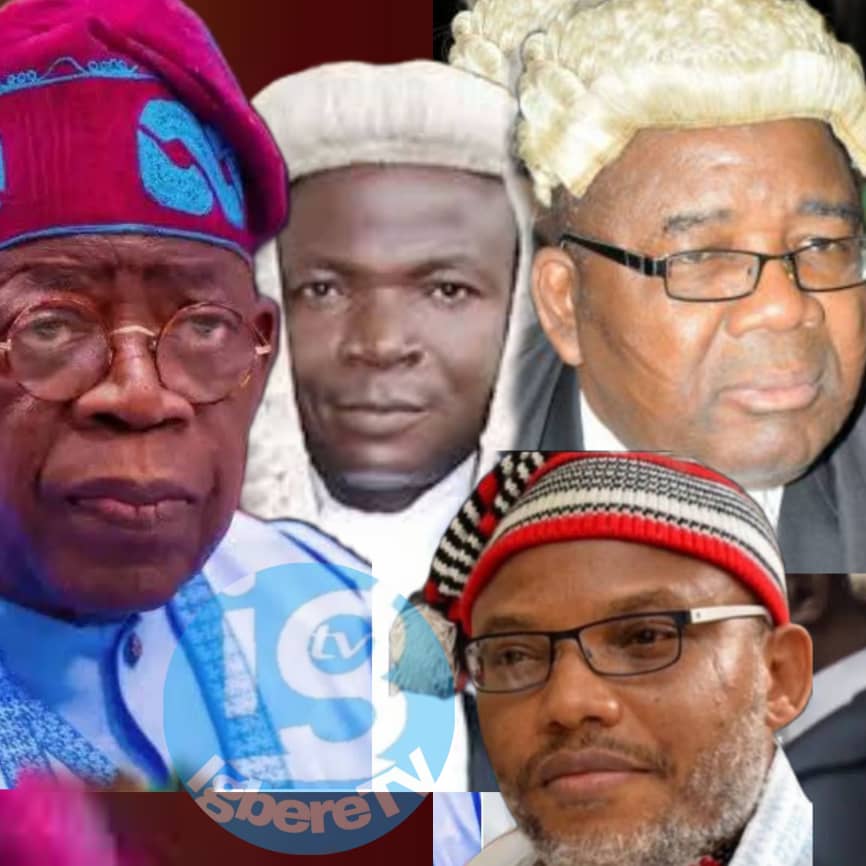Nnamdi Kanu has rejected the legitimacy of his terrorism conviction, telling relatives during a prison visit that the court relied on repealed laws and evidence not presented at trial.
Kanunta Kanu, brother to the jailed leader of the Indigenous People of Biafra (IPOB), Nnamdi Kanu, revealed on Sunday that Prince Emmanuel Kanu and Dr. Maxwell Opara visited the separatist leader at the Sokoto Medium Security Prison.
This visit came two days after President Bola Tinubu’s administration transferred Kanu from the Department of State Services (DSS) facility in Abuja to a correctional centre in Sokoto State.
Kanu was recently sentenced to life imprisonment on terrorism charges over his declaration of a “sit-at-home” order in the South-East, which the court ruled was enforced through threats and violence. He also received additional concurrent sentences of 20 years and five years on related counts. The court said international concerns over capital punishment influenced its decision to avoid the death sentence.
In a series of tweets, Kanunta said Kanu insisted his conviction had no legal foundation, arguing that no individual can be lawfully convicted under a repealed law. He added that Kanu complained that his final written address—centred on the right to fair hearing—was disregarded by the court.
According to Kanunta, Kanu further alleged that evidence cited in the judgment was neither listed in the charge sheet nor formally tendered during trial. He also expressed concern that the court relied on charges previously struck out by Justice Binta Nyako, describing this as a major flaw.
“He identified numerous errors that undermined the validity of his trial upon reviewing the judgment,” Kanunta wrote.
Kanu reportedly urged Nigerian judges, magistrates, and lawyers to study the ruling critically and uphold both the Constitution and the laws of the land.
Kanunta added that Kanu questioned why favourable rulings from the Umuahia High Court, Enugu Court of Appeal, United Nations bodies, and even the Supreme Court—affirming that the laws used against him had been repealed—were ignored.
Kanu also expressed gratitude to those who condemned what they saw as injustice: “I am Mazi Nnamdi Kanu, who will reject injustice, unfairness, and evil against anybody regardless of tribe, faith, or ethnicity,” he was quoted as saying.
His arrest and trial have long attracted national and international scrutiny, with critics alleging political interference. The court linked his sit-at-home directive to violent incidents, including the killing of former presidential aide Ahmed Gulak, and accused him of inciting unrest through broadcast messages.






